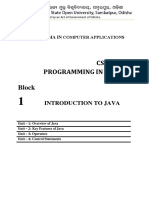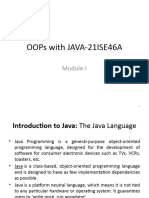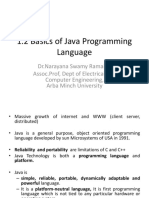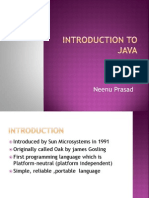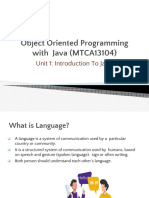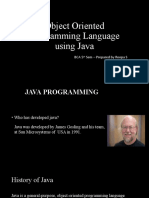0% found this document useful (0 votes)
349 views12 pagesJava
The document provides an introduction to Java as an object-oriented programming language developed by James Gosling in the early 1990s. It highlights Java's importance due to its portability and security, differentiates it from C/C++, and outlines its characteristics, advantages, and disadvantages. The course aims to cover essential computer science concepts for creating modern software applications using Java.
Uploaded by
Aftaz HussainCopyright
© © All Rights Reserved
We take content rights seriously. If you suspect this is your content, claim it here.
Available Formats
Download as PPTX, PDF, TXT or read online on Scribd
0% found this document useful (0 votes)
349 views12 pagesJava
The document provides an introduction to Java as an object-oriented programming language developed by James Gosling in the early 1990s. It highlights Java's importance due to its portability and security, differentiates it from C/C++, and outlines its characteristics, advantages, and disadvantages. The course aims to cover essential computer science concepts for creating modern software applications using Java.
Uploaded by
Aftaz HussainCopyright
© © All Rights Reserved
We take content rights seriously. If you suspect this is your content, claim it here.
Available Formats
Download as PPTX, PDF, TXT or read online on Scribd
/ 12


